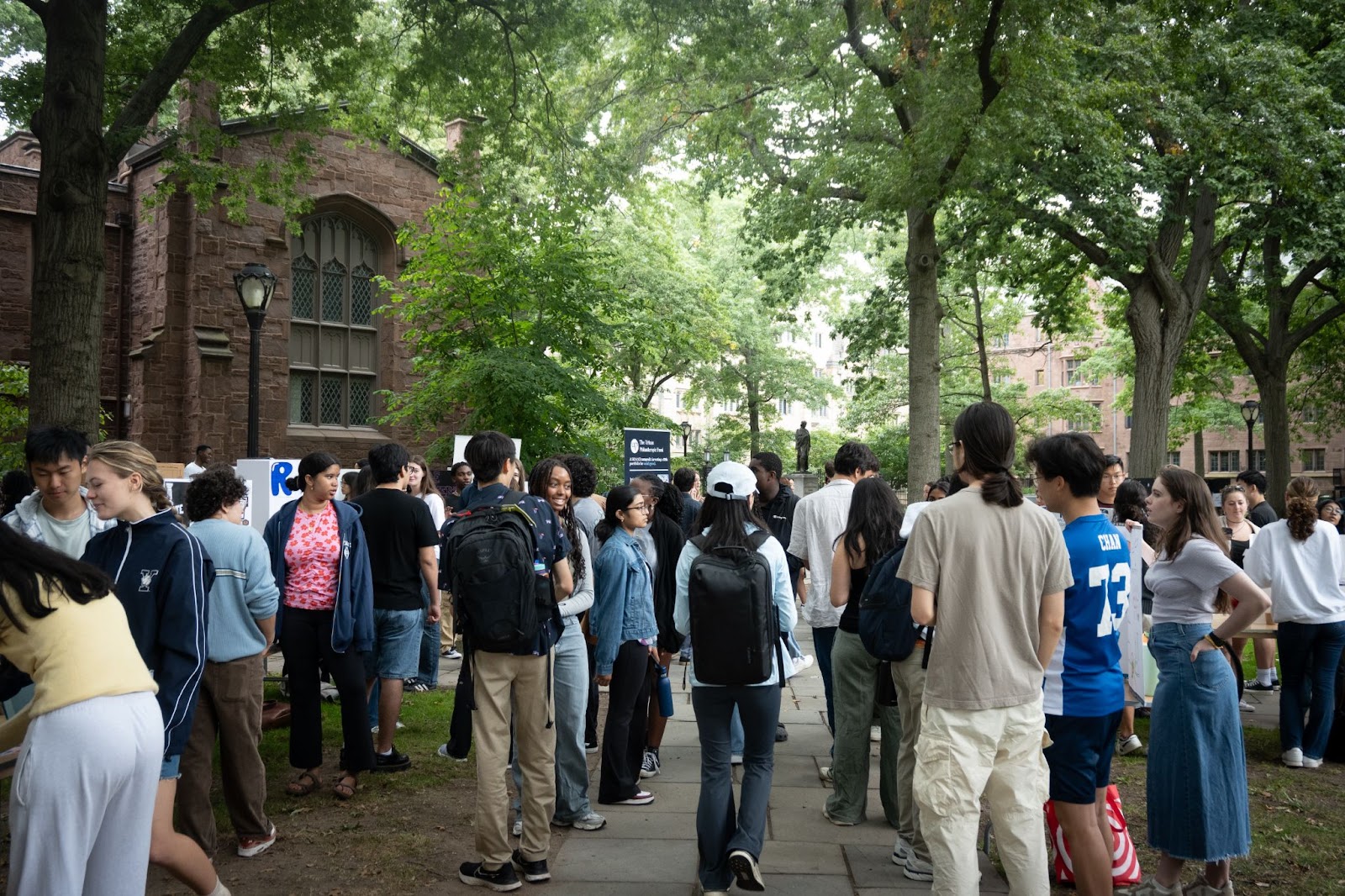Dwight Hall encourages students to get involved in New Haven through its annual service bazaar
Dwight Hall held a service bazaar on Sept. 7 showcasing groups on campus that facilitate student service within New Haven and actively work to improve Yale-New Haven relations.

Vy Nguyen, Contributing Photographer
Yale’s Dwight Hall held its annual service bazaar this Saturday, showcasing the breadth of community organizations and outreach groups on campus.
These student groups, most of which were not present at Yale’s overall extracurricular bazaar, fall under Dwight Hall, which focuses specifically on funneling Yale resources and student energy into the New Haven community. Student Co-Coordinator Rena Liu ’26 told the News that Dwight Hall’s social impetus is composed of two main goals: addressing the history of inequity in Yale’s relationship with New Haven and how students can use their careers to serve the public good.
“Community members should feel just as welcomed here as Yale students,” Avery DeWitt ’26, another student co-coordinator, told the News. “The entire point of service is to support one another and so many of us here at Yale are not from New Haven — one of the most important parts of being here and being a Yale student is not only to consider that relationship but to give back to it.”
Each group featured at the bazaar was dedicated to a particular social policy niche or sphere of the New Haven community. Many groups echoed the idea that Yale is “a bubble,” with New Haven residents being physically close to campus but having no emotional tie to the University.
Organizations like the Yale Urban Improvement Corp, or YUIC, are seeking to change this by creating opportunities for New Haven public school students to engage with the campus.
“The most important part is having them come to one of our centers. It’s important that they have a space to be comfortable in and somewhere they belong as well,” said Jesse Lawless ’25, a coordinator for YUIC. “It’s a great space that they know they can come into if they ever have homework or questions.”
Another concern that many groups identified as a core issue for New Haven was resource disparity.
Group leaders from Yale Migration Alliance and Yale Undergraduate Prison Project said that while lack of resources is a symptom of many problems in New Haven, resource distribution needs to be coupled with support and systematic realignment or “upstream work” to hold real weight.
“A lot of the work that Yale does right now is reactive to problems like houselessness but as we combat those we also want to be doing upstream work,” Zoe Kanter ’27, a First-Years in Support of New Haven coordinator, said. “If we can get socks and shoes to someone who needs them that’s great but if we can prevent someone from needing socks and shoes that’s even better.”
Dwight Hall has also pledged to continuously renew Yale’s commitment to New Haven and ensure the University continues to make equitable investments in the city.
According to Roan Hollander ’26, another First-Years in Support of New Haven coordinator, while Yale’s “bubble effect” on New Haven makes the prospect of getting involved in the community relatively intimidating, students should form individual relationships with the community that extend beyond Yale.
“[Students’] relationship with the city doesn’t have to be defined by whatever Yale’s relationship with New Haven is — it doesn’t have to be clouded by however the university as a whole operates,” said Hollander.
Dwight Hall is located at 67 High St.







